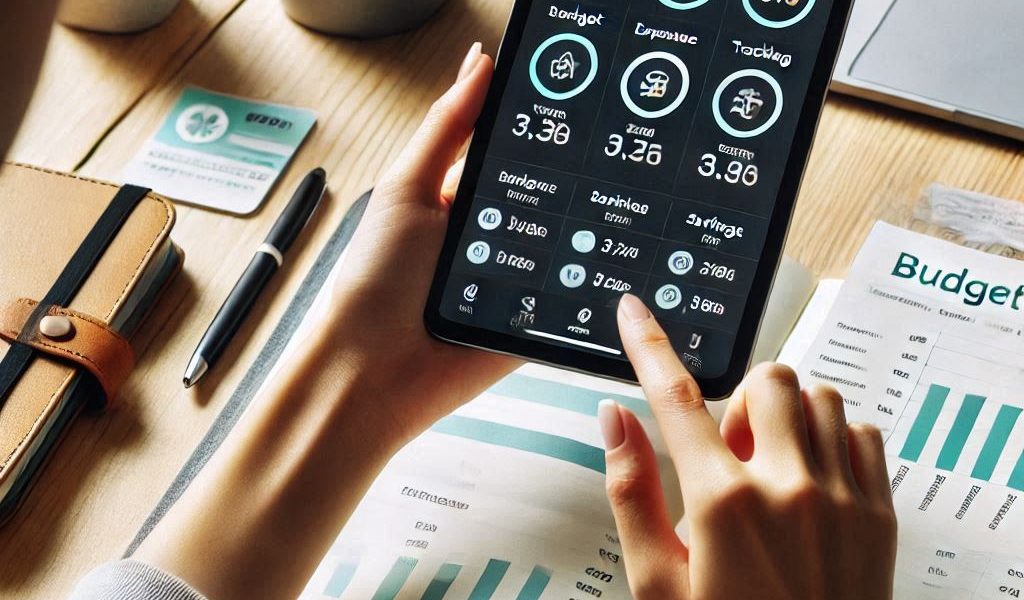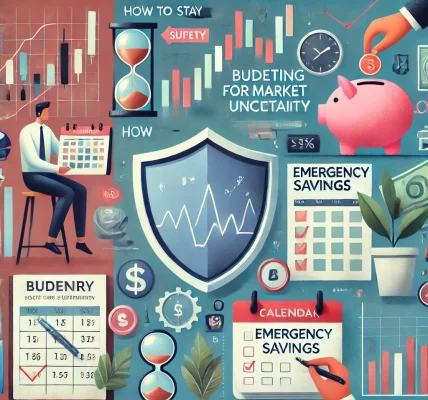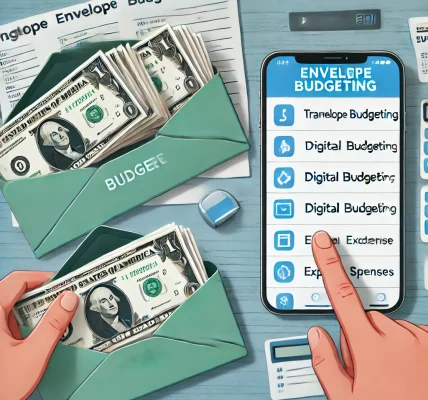In today’s fast-paced world, managing your finances effectively is more important than ever. Gone are the days when people had to rely on pen and paper or complicated spreadsheets to track their spending. Now, thanks to technology, budgeting and expense tracking have become easier and more efficient than ever with a variety of apps designed specifically for this purpose.
In 2025, the best budgeting and expense tracking apps are not only user-friendly but also feature-packed, allowing users to manage their finances on the go, automate their savings, and make informed financial decisions. Whether you’re trying to stick to a budget, save for a big purchase, or track your daily spending habits, these apps can help you take control of your finances.
In this blog, we’ll explore the best budgeting and expense tracking apps of 2025 that can help you stay on top of your financial goals and make smarter money decisions.
Why Use Budgeting and Expense Tracking Apps?
Managing your budget manually can quickly become overwhelming, especially as your financial transactions increase. Budgeting apps can simplify the process by automating tasks and providing a clear overview of your finances. Here’s why these apps are essential:
- Easy Expense Tracking: Automatically categorize your expenses so you know where your money is going.
- Real-Time Notifications: Receive alerts for upcoming bills, spending limits, and budget changes.
- Sync Across Devices: Access your finances from your phone, tablet, or desktop, ensuring you’re always up-to-date.
- Goal Setting: Set financial goals such as saving for a vacation, paying off debt, or building an emergency fund, and track your progress.
- Customizable Reports: Get detailed insights into your spending habits and savings trends with visual graphs and reports.
Top Budgeting and Expense Tracking Apps in 2025
1. Mint: The All-in-One Finance Manager
Mint has long been one of the most popular budgeting apps, and for good reason. Mint automatically tracks your spending and categorizes expenses, allowing you to see where your money is going in real time. In 2025, Mint continues to be an excellent choice for those who want to track all aspects of their financial life in one app.
Key Features:
- Expense tracking with automatic categorization.
- Alerts and reminders for bills and payments.
- Credit score monitoring.
- Investment tracking.
- Customizable budgets based on your spending patterns.
- Integration with over 16,000 financial institutions.
Why It’s Great: Mint’s ability to link to multiple bank accounts, credit cards, and loans means you can see a complete picture of your financial life in one place. The app also offers useful financial advice and tailored tips to help users save money.
2. YNAB (You Need a Budget): Budgeting for Proactive Savers
YNAB is ideal for users who want a proactive approach to managing their finances. This app is focused on helping you “give every dollar a job” by assigning specific roles to your income. It uses a zero-based budgeting method, which helps users allocate their income based on priorities.
Key Features:
- Zero-based budgeting that helps prioritize expenses.
- Goal setting and tracking for debt repayment and savings.
- Real-time syncing across devices.
- Financial reports and insights.
- Educational resources to help users master budgeting.
Why It’s Great: YNAB is ideal for people who want to be more hands-on with their budgeting. The app’s philosophy encourages saving before spending, which makes it perfect for building financial discipline.
3. PocketGuard: Simplified Expense Tracking
PocketGuard helps users avoid overspending by automatically categorizing transactions and showing you how much disposable income you have after accounting for your bills, goals, and savings.
Key Features:
- Track spending across multiple accounts.
- See how much money is available for discretionary spending.
- Create savings goals and automatically set aside money for them.
- Bank-level security to protect your financial data.
Why It’s Great: If you’re someone who struggles with overspending, PocketGuard’s “In My Pocket” feature is a game changer. It helps you see how much money you can safely spend, without impacting your financial goals or bills.
4. EveryDollar: A Budgeting App for Beginners
EveryDollar is designed for users who want a simple, straightforward budgeting experience. Created by financial expert Dave Ramsey, the app follows a zero-based budgeting method and helps you track your monthly expenses.
Key Features:
- Zero-based budgeting to assign every dollar a job.
- Sync with bank accounts to automatically track transactions (premium version).
- Debt tracking and goal setting.
- Expense categories that are easy to customize.
Why It’s Great: If you’re new to budgeting, EveryDollar’s simple interface and easy-to-follow steps will help you get started. The premium version even offers bank syncing, so your transactions are automatically recorded.
5. GoodBudget: The Envelope System for the Digital Age
GoodBudget brings the classic envelope budgeting system into the digital world. You can create virtual envelopes for different spending categories and track how much money is allocated for each.
Key Features:
- Digital envelope budgeting system.
- Sync across devices, allowing multiple users to access the budget.
- Track and save for goals like vacations, debt, or big purchases.
- Debt tracking and savings tools.
- Weekly and monthly budget reports.
Why It’s Great: If you prefer the envelope method of budgeting but want something more modern and flexible, GoodBudget is a great option. It allows you to divide your money into different categories while syncing with your devices for convenience.
6. Personal Capital: Track Investments and Net Worth
Personal Capital is a comprehensive financial tool that goes beyond basic budgeting. It’s perfect for people who want to track not only their spending and saving but also their investments and net worth.
Key Features:
- Budget tracking and expense management.
- Investment tracking, including retirement accounts and brokerage accounts.
- Net worth monitoring.
- Retirement planning tools.
- Customizable financial reports and charts.
Why It’s Great: Personal Capital stands out for its investment tracking features. If you’re focusing on retirement savings or growing your wealth, this app is an excellent choice.
How to Choose the Right Budgeting App for You
When choosing a budgeting app, consider these factors:
- Your Financial Goals: Are you focused on saving, paying off debt, or tracking investments? Choose an app that aligns with your goals.
- Ease of Use: Some apps are more complex than others. Make sure you choose one that suits your comfort level with managing finances.
- Budgeting Method: Decide whether you prefer a zero-based approach, envelope system, or a more passive tracking method.
- Cost: Many apps are free, but some offer premium features for a fee. Consider whether the added benefits are worth the cost.
Final Thoughts
Managing your finances in 2025 has never been easier thanks to the variety of budgeting and expense tracking apps available. Whether you’re just starting to take control of your finances or are looking for advanced tools to track investments, there’s an app for every need. Choose one that fits your financial goals and helps you stick to your budget, so you can achieve long-term financial success.



